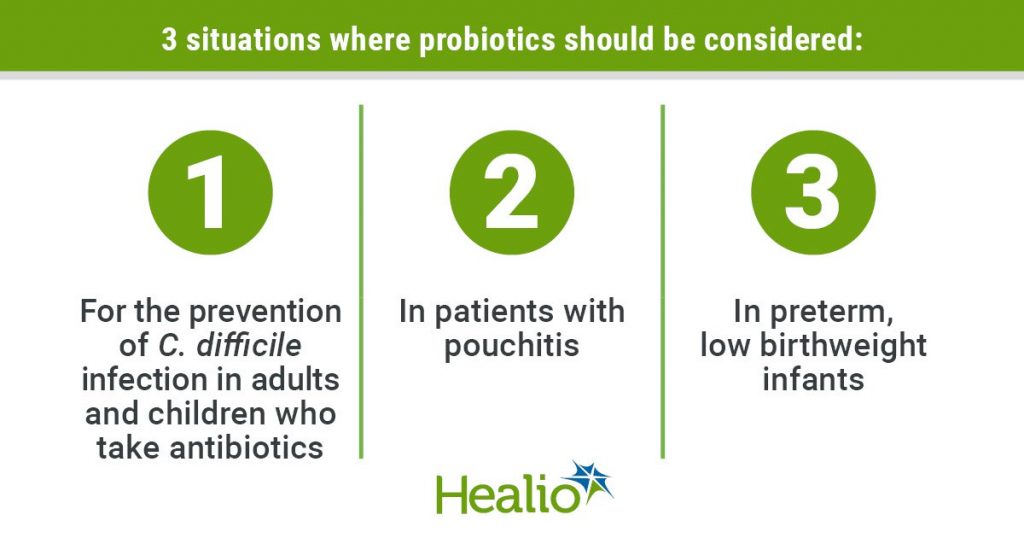When I read in June 2020 that the American Gastroenterologic Association (AGA) recommends probiotics for only 3 very specific cases, I was taken a back. After all-,have we not always heard ” Probiotics are good for the gut?” Not to mention, probiotics found in the pill form is a 45 Billion dollar business!
Here is a quick graphic to see that The American Gastroenterological Association only recommends probiotics for 3 very specific cases: For the prevention of C-difficile infection in adults and children who take antibiotics, in patients with pouchitis and in pre-term low birthweight infants.

“There are a lot of unmet needs patients have so they may turn to probiotics. There are patients looking for treatments they think are safe to care for their ailments. The AGA guidelines are important because probiotics are overused and, while generally safe, it is good the AGA is taking an evidence-based approach. From a patient standpoint the guidelines may come as a surprise because so many people take probiotics and are so interested in taking them.”
For more information please visit: https://gastro.org/news/aga-does-not-recommend-the-use-of-probiotics-for-most-digestive-conditions-2/
Probiotics and IBS
The International Scientific Association for Probiotics and Prebiotics states that the “AGA did not recommend probiotics for children or adults with irritable bowel syndrome (IBS) for two endpoints, global response (overall symptoms) and abdominal pain severity. However, this should not be interpreted as a lack of evidence for ‘digestive’ symptoms, considering the exclusion criteria imposed.
- The technical report states that 22 studies in IBS subjects were excluded from analysis, representing a potentially important gap in available evidence. Studies were excluded when no extractable data were reported and the corresponding author failed to provide data after two attempts of being contacted.
- Only studies on subjects diagnosed with IBS that reported on global response or abdominal pain severity were included, excluding studies on other clinically meaningful endpoints. Many studies on endpoints such as occasional diarrhea, occasional constipation, gut transit time, or individual digestive symptoms outside the context of IBS such as gas, bloating, or distension have been conducted. Such benefits can be meaningful and very helpful to people afflicted with such symptoms that severely impact quality of life.
Probiotics in Foods
So if the pill form is limited here. Then what about probiotics in foods? These probiotics or beneficial bacteria for the gut are found in fermented soybeans, dairy and vegetables. Here is a list of 8 natural probiotics from foods.
- Yogurt
- Kefir
- Sauerkraut
- Tempeh
- Kimchi
- Miso
- Kombucha
- Pickles
Next time you hit the grocery store, don’t forget to pick up an all natural probiotic.
